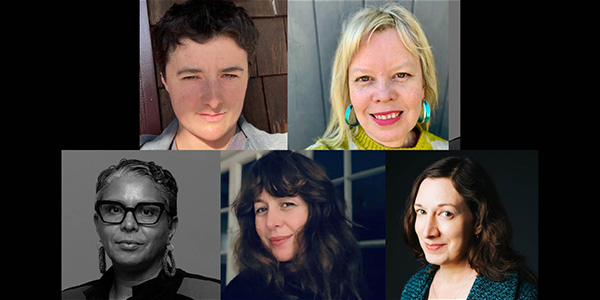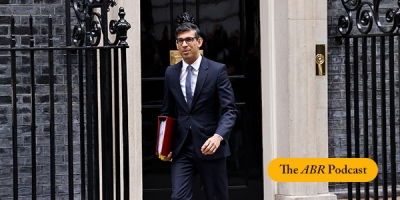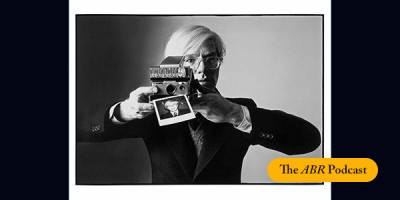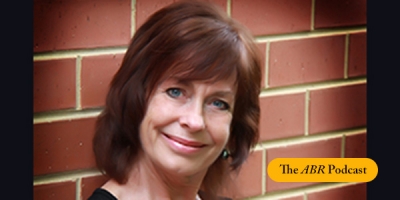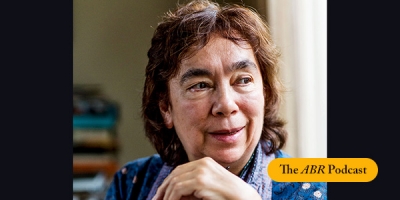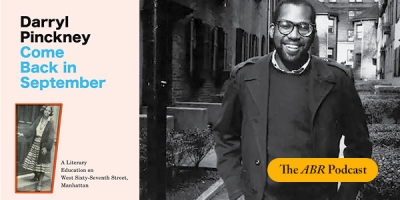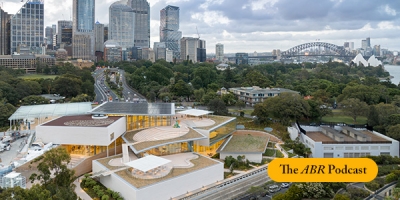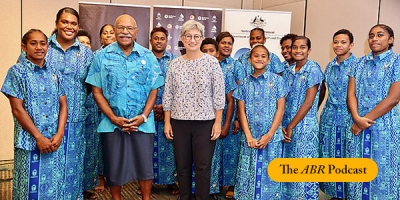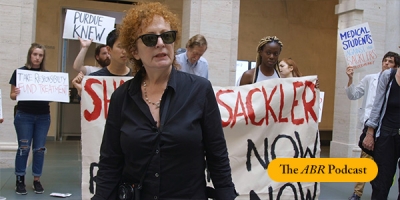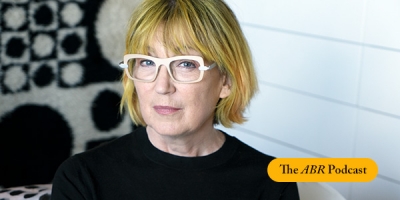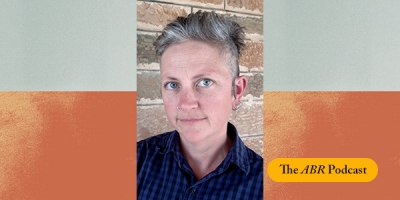Podcast
The ABR Podcast
Released every Thursday, the ABR podcast features our finest reviews, poetry, fiction, interviews, and commentary.
Subscribe via Apple Podcasts, Stitcher, Google, or Spotify, or search for ‘The ABR Podcast’ on your favourite podcast app.
Porter Poetry Prize 2026
The shortlisted poets
Recent episodes:
This week, on the ABR Podcast, we look at a major exhibition at the Art Gallery of South Australia, ‘Andy Warhol and Photography: A Social Media’. Ten years in the making, ‘Andy Warhol and Photography’ demonstrates the multiple ways in which Warhol’s aesthetic anticipated the social-media world we live in today, perhaps even helping give rise to it. Patrick Flanery is a novelist and Chair of Creative Writing at the University of Adelaide.
... (read more)In this week’s ABR Podcast, Tony Hughes-d’Aeth reviews Alexis Wright’s new novel, Praiseworthy. Expectations are high: after all, Wright is the only author to have won both the Miles Franklin Award and the Stella Prize.
... (read more)This week’s podcast features a review from ABR Editor Peter Rose of Darryl Pinckney’s absorbing new memoir, Come Back in September: A literary education on West Sixty-Seventh Street, Manhattan. The book recounts Pinckney’s early years in New York and his unlikely friendship with Elizabeth Hardwick, the American literary critic, novelist and short-story writer.
... (read more)In December last year, the Art Gallery of New South Wales launched its Sydney Modern project, the centerpiece of which was an extraordinary new building overlooking Sydney Harbour. Sydney Modern has received mixed reviews, some lamenting that it seems to have been designed as a chic backdrop for Instagram selfies. In this week’s ABR podcast, Julie Ewington, an arts curator and broadcaster, describes her first encounter with Sydney Modern in a piece titled ‘Lyrical layers at AGNSW’, published in the April issue of ABR.
... (read more)In this week’s ABR podcast, James Curran considers the response of Asia-Pacific nations to the government’s decision to retain AUKUS, the major foreign affairs initiative of the Morrison government. In seeking to shape this response, Foreign Minister Penny Wong’s message is necessarily complex, argues Curran.
... (read more)In this week’s ABR Podcast, film critic Anne Rutherford reviews Laura Poitras’s documentary All the Beauty and the Bloodshed, last year’s winner of the Golden Lion for Best Film at the Venice Film Festival. The film traces a campaign led by artist Nan Goldin to draw attention to America’s prescription painkiller epidemic via highly staged events, including a spectacular ‘die-in’ at New York’s Guggenheim Museum in 2019. Here is Anne Rutherford, Adjunct Associate Professor in Cinema Studies at Western Sydney University and the author of What Makes a Film Tick.
... (read more)Shirley Hazzard is widely regarded as one of Australia’s finest novelists, even though she published only four novels during her long lifetime. Now, Professor Brigitta Olubas from the University of New South Wales has written the first major literary biography of the writer in Shirley Hazzard: A writing life (Virago/Farrar, Straus and Giroux). In this week’s ABR podcast, ABR Editor Peter Rose interviews Professor Olubas about her study of the ‘complex, alluring, peripatetic artist’.
... (read more)This week the ABR Podcast considers Revive, Labor’s new National Cultural Policy. In a commentary for the March issue of ABR, Jennifer Mills, novelist and director of the Australian Society of Authors, separates the theatre from the substance at the launch of Revive. Mills asks how, precisely, Writers Australia will function, and whom it will benefit. Listen to Jennifer Mills reading ‘A revival meeting at the Espy: Labor’s new National Cultural Policy’.
... (read more)

